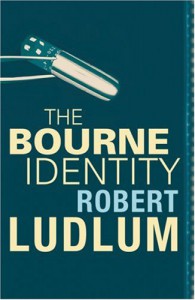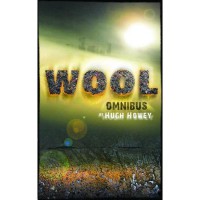Some of the Best from Tor.com: 2012 Edition
 A really, really good anthology. It was free, and worth every penny. Seriously though, I'd gladly pay for it.
A really, really good anthology. It was free, and worth every penny. Seriously though, I'd gladly pay for it.The standout piece, for me, was Pat Murphy's About Fairies (which you can read online on its own, http://www.tor.com/stories/2012/05/about-fairies). I don't know -- there's just something haunting about the narration. A sort of a quiet desperation combined with an undercurrent of compassion that really got to me. Sounds fuzzy, I know, but it's a worthy read, I promise.
Of Mice and Men (Steinbeck Centennial Edition)
 When approaching a classic like this, I'm always a bit apprehensive at first. I fear it won't be accessible, or that I won't "get" what makes it so timeless. With Of Mice and Men, this didn't happen. The little novella gripped me from the start. Sure, the dialect is heavy, but the rural setting, George's energies and Lenny's innocence (and sheer, abject, heartbreaking stupidity) instantly created an emotional connection for me.
When approaching a classic like this, I'm always a bit apprehensive at first. I fear it won't be accessible, or that I won't "get" what makes it so timeless. With Of Mice and Men, this didn't happen. The little novella gripped me from the start. Sure, the dialect is heavy, but the rural setting, George's energies and Lenny's innocence (and sheer, abject, heartbreaking stupidity) instantly created an emotional connection for me.I'm not sure whether or not this is a spoiler, but the end is not a happy one. A poignant, short classic I'm happy to have read.
Zero History
 Interesting: Despite having a lower Gooodreads rating than Pattern Recognition, I liked Zero History far better. Maybe Gibson's style finally grew on me, but I don't think it's just that. There's a bit more depth here, less empty hype (to me, at least).
Interesting: Despite having a lower Gooodreads rating than Pattern Recognition, I liked Zero History far better. Maybe Gibson's style finally grew on me, but I don't think it's just that. There's a bit more depth here, less empty hype (to me, at least).I skipped Spook Country (Blue Ant #2) for the simple reason I didn't have it -- I got Pattern Recognition and Zero History not knowing they were a part of a trilogy. Zero History worked fine even without knowing what happened in Spook Country, even though many of the characters carried through from the previous book. Now I'm not sure whether or not I should read Spook Country.
A good read.
Stories: All-New Tales

Reviewing an anthology is not an easy task; almost no anthology is perfect. It's like that hackneyed proverbial box of chocolates: You never know what you're going to get when you start a new story. In this particular collection it's even more so, because it's all over the place, thematically speaking. It's not classic Tolkien-style "fantasy," but it's not really Gaiman-style "fantasy" either. In fact, towards the end, some of the pieces don't really have any fantastical elements at all, and feel more like classic literature than anything else.
The book starts off strong with stories that are engaging and imaginative, each a unique gem. It continues well up until the middle, but sadly, loses its vigor somewhere around the 70% mark. Kurt Andersen's Human Intelligence, page 363, is the last good story in the volume. It's followed by a trio of unfortunately tedious tales, including The Maiden Flight of McCauley's Bellerophon, which is as pointless a short story as I've ever read. Not to dwell on the negative though -- this is really the tail end of the book, and what precedes it is mostly great.
In other words, do read this book, but save yourself the tedium that follows Andersen's beautiful tale. Up until that point, I'd warmly recommend this anthology.
Pattern Recognition
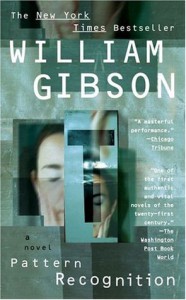 Not what I expected from Gibson; the book is set around 2002 (9/11 plays a major role), and on the one hand it's supposed to be futuristic Sci-Fi (it's a Gibson, after all), but on the other hand, it's full of references to outdated technology, making it feel a bit old.
Not what I expected from Gibson; the book is set around 2002 (9/11 plays a major role), and on the one hand it's supposed to be futuristic Sci-Fi (it's a Gibson, after all), but on the other hand, it's full of references to outdated technology, making it feel a bit old.I mean, it's hard for me to seriously take a book as Sci-Fi or cyberpunk when the heroine is using an ancient Mac which she has to plug into a landline to go online. There's lots of name-dropping in the book (famous brands and so on), but it's elegantly tied into the plot, so it doesn't feel like The Girl With The Dragon Tattoo in that respect. That said, there are other obvious parallels, not the least of which is the young wiry-thin female heroine.
Reading it now, in 2012, parts of it feel a bit strained and overwrought -- like Gibson was really trying to impress with convoluted prose. But that's not something I'd say about the book as a whole: Many of the descriptions are striking and fun to read (the Moscow subway stations, for example).
All in all, this is a nice book, but don't expect anything earth-shattering. An okay read.
Wonderboys.
 Extremely disappointing. I really enjoyed The Yiddish Policemen Union and Kavalier & Clay, and had high expectations for Wonder Boys. Unfortunately, the book didn't deliver. It's supposed to be a satire, but the prose tries too hard. Sentences are belabored, even more convoluted and wordy than Chabon's usual style, which is saying something). And worst of all, the story just isn't interesting. I couldn't get an emotional connection with no character -- they're all so bored and messed up (in boring, mundane ways) that it really didn't click.
Extremely disappointing. I really enjoyed The Yiddish Policemen Union and Kavalier & Clay, and had high expectations for Wonder Boys. Unfortunately, the book didn't deliver. It's supposed to be a satire, but the prose tries too hard. Sentences are belabored, even more convoluted and wordy than Chabon's usual style, which is saying something). And worst of all, the story just isn't interesting. I couldn't get an emotional connection with no character -- they're all so bored and messed up (in boring, mundane ways) that it really didn't click.I tried -- honestly. I rarely ditch a book midway through, but I couldn't bring myself to finish this one. Maybe it picks up after the middle, but the first half just wasn't worth it.
Ready Player One
 A fun little book. Not being an American, I didn't get many of the references despite growing up in the Eighties. I still enjoyed it, though.
A fun little book. Not being an American, I didn't get many of the references despite growing up in the Eighties. I still enjoyed it, though.
Reamde: A Novel
 An excellent thriller, with a few caveats:
An excellent thriller, with a few caveats:1) This is not a "big idea" book. Don't expect something like Anathem or Cryptonomicon. It's "just" a thriller, but an excellent one at that.
2) If you're going to read this book, I suggest you read it in the next six months or so. It contains so many contemporary tech references (Facebook, Twitter, and more), that I'm sure it will look dated in five years. Parts of it read almost like a tech blog with a plot, really. Still, lots of fun and definitely interesting.
And now for the good parts:
1) At over 1,000 pages, this is a lot of book for the money. The plot is intricate and stays interesting all the way through -- there were no parts where I felt I'm getting bored.
2) I liked the characters, and as usual with Stephenson, the research felt excellent. Many of the locations are intricately detailed, in a way that made me feel like he was actually there and took notes.
In short, this is more Interface and less Anathem. Not a bad thing IMHO, and I warmly recommend REAMDE.
Water for Elephants: A Novel
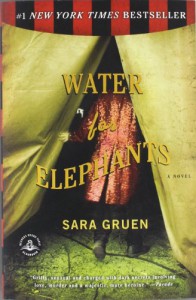 Loved this book. The characters are just a tad flat, but it was lots of fun. I mean, the bad guy is -really- bad, the pretty lady is -really- pretty, and the good guy is really very good. But it's a lovely romantic triangle, and I loved the period details. I feel like I've learned lots of new things about life in the Thirties and about the circus.
Loved this book. The characters are just a tad flat, but it was lots of fun. I mean, the bad guy is -really- bad, the pretty lady is -really- pretty, and the good guy is really very good. But it's a lovely romantic triangle, and I loved the period details. I feel like I've learned lots of new things about life in the Thirties and about the circus.Very glad I read Water for Elephants; it was a welcome break from Sci-Fi.
Q & A
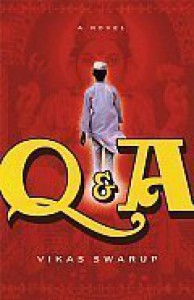 A very entertaining read. Some of the coincidences are stretched a bit too thin for my taste -- I had trouble suspending disbelief. But it's an interesting look into India and the incredible gaps between rich and poor there.
A very entertaining read. Some of the coincidences are stretched a bit too thin for my taste -- I had trouble suspending disbelief. But it's an interesting look into India and the incredible gaps between rich and poor there.The plot is pretty different from the movie.
Zoe's Tale
 A disappointing read. I guess I deserve it for not reading the synopsis.
A disappointing read. I guess I deserve it for not reading the synopsis.I was expecting something truly new. I mean, it's okay for the plot to pick up slightly earlier than where the last book ended off, but this is ridiculous: It's just a rehash of book #3 with an annoying faux-teen voice that really doesn't work. :
Given the quality of the first three books, I expected much more from this one. Feel free to skip this one -- I wish Scalzi would not have given it to the temptation of adding yet another volume to the series, or better yet, had taken the time to create something truly new.
Old Man's War
 Very nice, classic Sci-fi. An entertaining read. Some parts seemed a bit corny to me, but all in all, a lovely book and an interesting take on war. I will definitely be reading the next one.
Very nice, classic Sci-fi. An entertaining read. Some parts seemed a bit corny to me, but all in all, a lovely book and an interesting take on war. I will definitely be reading the next one.



